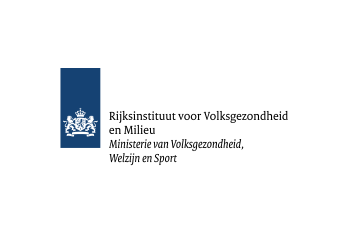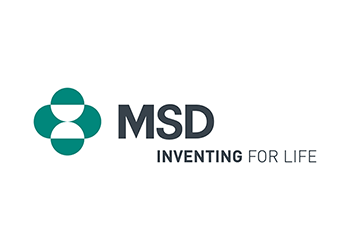Have you had sex that put you at risk for HIV? Or did you use someone else's equipment to administer drugs? Do you have symptoms that could indicate HIV? Go for an HIV test.
For personal advice, please contact the Soa Aids Nederland info line, which can be reached from Monday to Friday.
In brief:
- There are several reasons for getting tested for HIV.
- You can get tested at your general practitioner, the GGD (Municipal Health Centre), an HIV rapid-test location, or you can do a self-test.
- If you were exposed to HIV less than 72 hours ago, taking PEP to prevent HIV infection is an option.
- The 3rd generation HIV test gives a reliable result 8 weeks after you were exposed. If the test comes up negative, repeat it 12 weeks after you were exposed.
- The 4th generation HIV test gives a reliable result 6 weeks after you were exposed. If the test comes up negative, repeat it 12 weeks after you were exposed.
- An RNA test can detect HIV as early as 1 to 2 weeks after you were exposed, but this test is not widely available.
- A rapid test gives you results within an hour, but it is not recommended if you are taking PrEP because the test is then less reliable.
Is an HIV test necessary?
HIV is mainly found in blood, semen, vaginal fluids and breastmilk. The virus can also be found in other bodily fluids, but in such low concentrations the risk of transmission is zero. Read more here about the risk of transmitting HIV.
You can get tested for HIV in the following cases:
- You’ve had sex with someone who has HIV but does not have a suppressed virus, and you didn’t use a condom.
- You’ve had sex with someone who you think might have HIV, and you didn’t use a condom.
- You’ve had an accident with an injection needle used by someone who has HIV but does not have a suppressed virus.
- Someone has told you that you are at risk.
- You have symptoms that indicate HIV infection (see acute infection for more info)
Which test when?
Which test is appropriate, and when you can get tested, depends on how long ago you were exposed to HIV. When do you think you might have been exposed?
Less than 72 hours ago
Taking PEP (postexposure prophylaxis) for a month after you've been exposed, can prevent HIV infection. You should start taking PEP within 72 hours after you've been exposed, the sooner you start the better. Contact the GGD as soon as possible if you think you need PEP. If you don't manage to contact the GGD, you can contact Spoedeisende Hulp (Emergency room) at the hospital. After 72 hours there is no point in taking PEP.
3 months after you have finished the PEP cure (so 4 months after you were exposed) you have to do an HIV test to rule out HIV.
3 days to 2 weeks ago
If you suspect you have an acute HIV infection (contracted HIV less than 2 weeks ago), tell your general practitioner or a GGD employee you think you have an acute HIV infection. Sometimes it is possible to detect HIV at an early stage with an RNA test. However, this is not an option at all hospitals and all GGDs. If this test is positive, you will be referred to an HIV treatment centre.
The RNA test is also offered at the One Day Clinic in Amsterdam for € 200. If you take an RNA test here and it is positive, you will not be referred to an HIV treatment centre immediately. Instead, you will be advised to get tested again with a 4th generation test, 12 weeks after you were exposed.
If an RNA test is not possible, follow the advice given in 2 to 6 weeks ago.
2 to 6 weeks ago
The HIV tests that are most commonly used (the 4th generation tests) are reliable 6 weeks after you were exposed. But it still makes sense to do this test earlier. Often the 4th generation test will detect HIV in your blood just 3 weeks after you were exposed. If the test is negative, it is important to repeat it 12 weeks after you were exposed.
6 to 8 weeks ago
The 4th generation test is reliable 6 weeks after you were exposed, so you can’t go wrong with this test. So check whether you were tested with a 3rd generation or a 4th generation test. The 3rd generation test is not reliable at this point. If the test comes up negative, repeat it 12 weeks after you were exposed.
More than 8 weeks ago
If you were exposed at least 8 weeks ago, the 3rd generation test and the 4th generation test are both reliable. If the test comes up negative, repeat it 12 weeks after you were exposed. If you were exposed at least 12 weeks ago, the 3rd generation HIV rapid test (also available as a self-test) is reliable.
Where can you take an HIV test?
There are several ways to get an HIV test. The costs and type of test can differ from place to place. Check below for which place suits you best.
General practitioner
You can have an HIV test done at your general practitioner’s practice. You often get the results from the doctor’s as fast as from the GGD. Your own name has to be used in the test because of the health insurance, but your doctor has a duty of confidentiality. The costs are deducted from your eigen risico (the excess that has to be paid for health costs). Once you've used up your eigen risico, the other tests are free of charge. But you have to pay for HIV tests until your eigen risico has been used up.
If the test shows that you have HIV, you will be referred to an HIV treatment centre, where specialists will give you further assistance.
GGD/STI clinic
STI tests at the GGD (in Dutch) are always free and are intended for people who are at extra risk of contracting an STI. Specialists in the field of sexual health and STI prevention work at the STI clinic. They answer any questions you may have about sex, and give advice. If desired, you can be treated anonymously.
STI testing at the GGD is free for young people under 25, men who have sex with men, sex workers, people who have been warned by someone with HIV, and people who have symptoms. If you come from a country where there is a high incidence of STIs, you too can get tested at the GGD free of charge. However, you have to leave contact details so you can be contacted for the results. In some cases, you can check the results online, or you receive a text message.
Sometimes there is a waiting list at the GGD. The GGD might refer you to your general practitioner, even though you are at high risk. This is so that you can be tested quicker.
If the test shows that you have HIV, you will be referred to an HIV treatment centre, where specialists will give you further assistance.
HIV rapid-test locations
There are places all over the country where you can go for an HIV rapid test. A rapid test delivers the results within an hour. But don’t forget: the rapid test is not recommended if you are taking PrEP.
Examples of HIV rapid-test locations are the Stadskliniek (in Dutch) and the One Day Clinic (they both use the 4th generation test, which is reliable 6 weeks after you were exposed, although it has to be repeated at 12 weeks if the result is negative). This rapid test costs around € 100.
You can get a free HIV rapid test done at AHF Checkpoint in Amsterdam and Rotterdam, click here for more information. At AHF Checkpoint they use the 3rd generation rapid test, which is reliable 12 weeks after you were exposed.
You can also get a rapid test at some GGDs. Check the website of a GGD (in Dutch) near you to see if you are eligible for an HIV test, and whether that GGD offers HIV rapid tests.
If the test indicates you have HIV, you will be referred to an HIV treatment centre where the specialists will give you further assistance.
Testlab
You can get a free HIV test, and other STI tests, at Man tot Man’s Testlab. The requirements are that you are a man who has sex with men, and that you live in one of the following places: Amsterdam, Rotterdam-Rijnmond and Dordrecht; the Haaglanden region (The Hague, Delft and surrounding area); the Gelderland-Zuid region (Nijmegen and Tiel); Groningen, Drenthe or Friesland. You cannot use the Testlab if you are a woman, a heterosexual man or you don't live in any of these places.
The procedure consists of four easy steps:
- You request the test form online.
- You go to a blood testing centre near you.
- They will give you a standard test for HIV, chlamydia, gonorrhoea and syphilis.
- You get the results online 5-10 working days later.
If they find you have an STI, you can get free treatment at the GGD. If you have HIV, you will receive a referral to an HIV treatment centre near you.
Self-test
You can buy HIV self-tests on the internet and at pharmacies. You can use them at home to test blood or saliva for HIV antibodies. One advantage of the self-tests is that you can test whenever it suits you, and you don't have to wait in line. There are two types of HIV self-tests:
- Tests where you get immediate results. HIV self-tests where you get immediate results, are not very reliable. They are usually a lot cheaper than the reliable tests. These test results give false positives or false negatives more often. The main disadvantage of these tests is that they are usually 3rd generation rapid tests. So your self-test isn't reliable until 12 weeks after you were exposed. These tests are not recommended for people taking PrEP.
- Tests that you send to a laboratory and get the results after a few days. These tests are reliable. Click here (in Dutch) to find out where you can buy reliable self-tests. The tests you have to send in are usually 4th generation tests. The 4th generation test is reliable 6 weeks after you were exposed. If the test comes up negative, the advice is still to repeat it 12 weeks after you were exposed.
If your self-test comes up positive, you will be tested again by your general practitioner or the GGD just to be sure. If this test is positive as well, you will be referred to an HIV treatment centre. So it is often easier and cheaper to get tested directly at your general practitioner’s practice or at the GGD.
Various kinds of HIV tests
There are various ways of testing the blood to see if someone has HIV. Looking for antibodies and/or antigens is one of them. Click here to read more about what antibodies and antigens are. The same test is used for HIV-1 and HIV-2.
Rapid test
An HIV rapid test draws a drop of blood via a finger prick. The results of an HIV rapid test are usually available within 20 minutes to an hour. The results of a regular HIV test are usually given within a week. The rapid test is also called a point of care (POC) test.
Nowadays there are reliable rapid tests that can establish the presence of HIV after 6 weeks: the Alere HIV Combo and the Alere Determine HIV-1/2 test. These are 4th generation tests. But most rapid tests are 3rd generation tests. The 3rd generation rapid test is not reliable until 12 weeks after the infection. Check carefully which rapid test is being used, so that you know whether the result is reliable, and whether you may need to be tested again.
The rapid tests have a sensitivity of at least 98.1% and a specificity of at least 98.9%. This means that at least 98.1% of people with HIV test positive, and at least 98.9% of people without HIV test negative. Don’t forget: the HIV rapid test is not recommended if you are taking PrEP. If you are taking PrEP it's better to get a regular HIV test.
3rd generation test
The 3rd generation test is mainly sold on the internet and used in free HIV tests. The 3rd generation test is not a reliable indication of HIV if you have been exposed recently. This is because the test only measures HIV antibodies (immunoglobulin G and immunoglobulin M). So the test only works if you have already made antibodies.
So the test is reliable at 8 weeks, although sometimes the test can show HIV after only 6 weeks. If the test comes up negative, repeat it 12 weeks after you were exposed. In very rare cases, the test takes more than 8 weeks to react.
The 3rd generation test is an ELISA-test. When the ELISA-test gives a positive result, the Western Blot is done on the same blood to be absolutely sure of the result.
The 3rd generation tests have a sensitivity of 99% and a specificity of 99%. This means that 99% of people with HIV test positive, and that 99% of people without HIV test negative. So, if you take the test 8 weeks after being exposed, there is a miniscule chance that the test shows a false positive or a false negative. But if you test negative another test, 12 weeks after the exposure, is always recommended, just to be sure.
4th generation test
In the Netherlands, a 4th generation test is usually used in hospitals, at the general practitioner, and at the GGD. This test is also called the combination test. This test detects both HIV's p24 protein and the antibodies produced by the body itself (immunoglobulin G and immunoglobulin M). The p24 protein is an antigen and is on the surface of an HIV particle.
The p24 protein is detectable shortly after infection, before the HIV antibodies have formed. So this p24 test only works for a short time after infection. The p24 protein cannot be detected long after infection, because the antibodies neutralise the p24 protein. But because antibodies remain present, HIV shows up in this test even after a longer period.
The 4th generation test is reliable 6 weeks after infection. But it still makes sense to do this test earlier. Often HIV is already detectable in your blood after 3 weeks. If the test comes up negative, repeat it 12 weeks after you were exposed. In very rare cases, the test will take longer than 6 weeks to react.
The 4th generation test is an ELISA-test. When the ELISA-test gives a positive result, the Western Blot is done on the same blood to be absolutely sure of the result.
The 4th generation tests have a sensitivity of at least 99.7% and a specificity of at least 99.5%. This means that at least 99.7% of people with HIV test positive, and at least 99.5% of people without HIV test negative. So, if you take the test 6 weeks after being exposed, there is a miniscule chance that the test shows a false positive or a false negative. But if you test negative another test, 12 weeks after the exposure, is always recommended, just to be sure.
5th generation test
There is a 5th generation test, but it is not widely used. This test detects the HIV p24 protein, and the antibodies produced by the body itself (immunoglobulin G and immunoglobulin M). But because this test detects and identifies antibodies and the p24 protein individually, it can estimate how long a person has had HIV. This test can also indicate whether someone has HIV-1 or HIV-2.
RNA test
The RNA test can detect an infection at a very early stage (7 to 16 days after exposure to the virus). The RNA test is not available at all the GGDs and hospitals.
When you have HIV, the RNA test also measures the viral load. If a person is on HIV medication and the virus is sufficiently suppressed, the virus may not be measurable in viral load tests. There is then so little virus in the body, the test cannot detect it. If someone with an undetectable viral load takes a regular HIV test (the 3rd generation or 4th generation test), the test will be positive.
Free HIV test
- You can do an HIV test free of charge at your general practitioner when your eigen risico has been used up. You will be liable to pay any costs for an HIV test until you eigen risico has been used up.
- HIV tests at the GGD (in Dutch) are free for young people under 25, men who have sex with men, sex workers, people who have been warned by someone with HIV, people who have symptoms. If you come from a country where there is a high incidence of STIs, you too can get tested at the GGD free of charge. Check on the website of a GGD near you if you can make an appointment.
- If you are a man who has sex with men, you can go to the Testlab for a free HIV test. You will need to be living in one of the following places: Amsterdam, Rotterdam-Rijnmond and Dordrecht; the Haaglanden region (The Hague, Delft and surrounding area); the Gelderland-Zuid region (Nijmegen and Tiel); or in Groningen, Drenthe or Friesland. Click here for conditions and more information.
- You can also have a free HIV test done at AHF Checkpoint in Amsterdam and Rotterdam. Click here for the opening times.
- From September 23, 2020 everyone can go to DC Klinieken Lairesse in Amsterdam for a free HIV rapid test. More information can be found here (in Dutch).
- Are you living in an asylum seeker centre (AZC)? Then you can get a free test at the AZC’s health centre.
HIV tests for people without a residence permit or health insurance
If you don't have a residence permit or health insurance, you can still get tested for HIV. If you test positive, you have the right to treatment, even without insurance.
HIV test for pregnant women
Pregnant women are routinely tested for HIV in the Netherlands. There is standard testing for pregnant women, because HIV treatment during pregnancy can ensure the baby will not contract HIV. So the test is not done for the mother, but for the unborn child.
HIV test and PrEP
Pre-exposure prophylaxis (PrEP) can influence the results of an HIV test. PrEP can cause the antibody production to be lower than normal, and for an HIV test not to be positive even though you have HIV. This occurs mainly with rapid HIV tests. So we advise you to take a regular HIV test when taking PrEP, and not an HIV rapid test.









